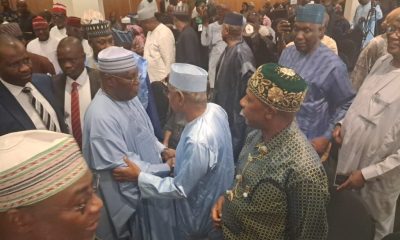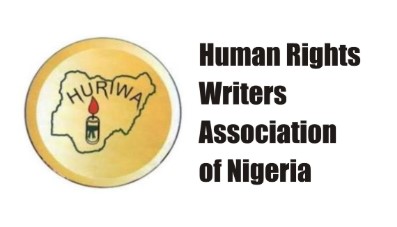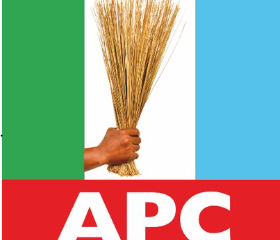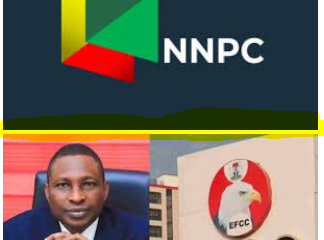The Economic and Financial Crimes Commission (EFCC), had earlier today filed fresh corruption charges against two multinational oil firms, Shell and Eni and some Nigerians for their roles in the Malabu $1.1 billion scandal at a Federal High Court in Abuja.
Some of the others charged alongside Shell and Eni are two former Nigerian ministers, Mohammed Adoke (Justice) and Dan Etete (Petroleum), as well as controversial businessman Aliyu Abubakar.
The suspects are accused of, among others, conspiring to defraud the Nigerian government.
The new charges are part of an international collaboration to ensure all those who partook in the $1.1 billion OPL 245 scandal are brought to justice.
The OPL 245 oil block is currently owned by the Nigerian government after a temporary court order granted an EFCC application.
Shell and Eni have since appealed the order asking that the block be returned to them. Both firms paid the $1.1 billion into a Nigerian government account in 2011. Most of the money later ended up with shady individuals including Messrs. Etete and Abubakar.
Recalled that earlier this week, an Abuja Division of the Federal High Court fixed March 13 to decide on an application for the retraction of a January 26 order withdrawing control of an oil block, OPL 245, from two multinational oil companies.
The oil firms, Shell and Eni, through their Nigerian subsidiaries, challenged the propriety of the Nigerian government withdrawing the oil block from them, pending the determination of a criminal matter.
OPL245 is considered one of Nigeria’s richest oil blocks and estimated to contain over 9 billion barrels of crude.
Apart from Shell and Eni, who want the block back, Malabu, the firm to which the block was originally assigned by the Nigerian government in 1998 under controversial circumstances, also sought to retake possession of the block.
After several political and judicial intrigues that ensured OPL 245 changed hands several times between Malabu, Shell, and the Nigerian government, Goodluck Jonathan emerged Nigeria’s president in 2010. On the prompting of his attorney general, Mohammed Adoke, one of Mr. Jonathan’s first directive upon assuming office was that the oil block be given to Malabu.
By 2010, Mr. Etete had schemed out other owners of Malabu including by fraudulently altering Corporate Affairs Corporation, CAC, documents, investigations revealed.
The agreements that were sealed led to Shell and ENI paying the $1.1 billion into a Nigerian government account in JP Morgan Chase in London. The money was to then be transferred to Malabu accounts controlled by Mr. Etete.
Although Shell and ENI have repeatedly claimed they did not know the money was going to end up with Malabu, investigations in Nigeria and Italy as well as leaked documents revealed that claim to be false. Mr. Adoke himself would later admit that he, on behalf of the federal government, only acted as a mediator for two willing parties – Malabu and the oil majors.
On August 16, 2011, a day before Mrs. Okonjo-Iweala was to assume office, Mr. Adoke and the then Minister of State for Finance, Yerima Ngama, authorised the transfer of the money to Malabu accounts in Nigeria controlled by Mr. Adoke.
However, all the $1.1 billion could not be transferred. Emeka Obi, a man who claimed he helped broker the deal between Malabu and the oil majors filed a suit in the UK that ensured $215 million was frozen of the money. The remaining $801 million was subsequently transferred to Mr. Etete: $400 million was transferred to a Bank PHB account while $401 million was transferred to a First Bank account.
It is based on its investigations of the corruption surrounding the transfer of the block that the EFCC asked the court that it be temporarily forfeited to the Nigerian government. The request, granted by the court, is what Shell and Eni are contesting and which will be decided on March 13.

 Latest1 week ago
Latest1 week ago
 Health7 days ago
Health7 days ago
 Football7 days ago
Football7 days ago
 News1 week ago
News1 week ago
 News1 week ago
News1 week ago
 Latest7 days ago
Latest7 days ago
 Latest7 days ago
Latest7 days ago
 Crime7 days ago
Crime7 days ago











